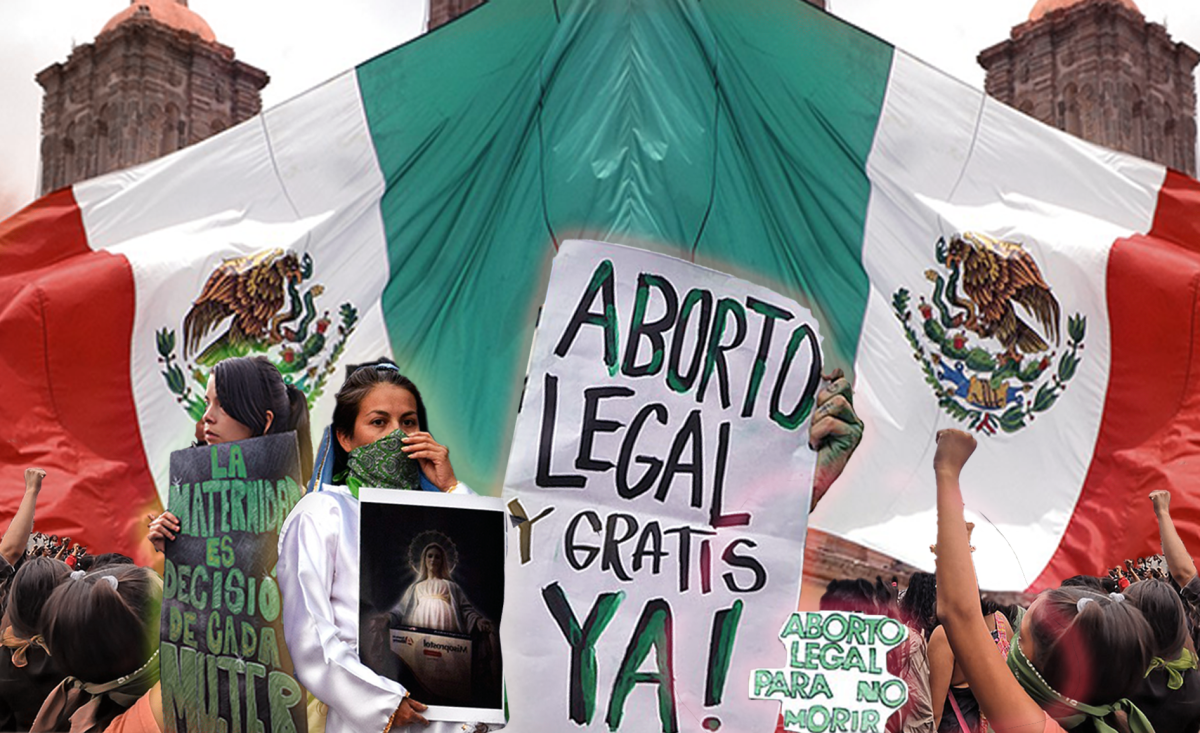
Photo illustration by Nick Ybarra
Some San Jose State students and community members believe the Sept. 7 ruling in Mexico decriminalizing abortion is a step in a progressive direction.
Mexico’s Supreme Court unanimously voted abortion penalization as unconstitutional, which many advocates considered a succes for human rights, according to a Sept. 8 Reuters article.
The decision in the world’s second-largest Roman Catholic country means the courts can no longer prosecute abortion cases. This follows the historic legalization of the pro-choice right in Argentina, which took effect on Jan. 14, according to the Center for Reproductive Rights.
The 10-0 ruling ordered the state of Coahuila to eliminate sanctions surrounding abortion criminalization, according to a Sept. 7 The Guardian article.
Mexico’s ruling comes as a growing feminist movement has taken to Mexico’s streets, pressing for change including the end of anti-abortion laws throughout much of the country.
Multiple protests including a Sept. 8 demonstration in Coahuila’s state capital Saltillo have broken out, composed of women wearing green bandanas to symbolize the pro-choice movement, according to the same Reuters article.
SJSU alumna Monet Barron said in Catholic practice, Mexico’s dominant religion, abortion is not acceptable.
“The majority of people in Mexico are Catholic, which makes abortion a big no. Mexico decriminalizing abortion would make it a less of a taboo topic . . . within the country itself,” Barron said. “For the followers of catholicism, it depends on the individual and how much they follow the [religion].”
Mexico is the largest Catholic country after Brazil, with more than 100 million individuals practicing the religion, according to a Sept. 8 Reuters article.
The Roman Catholic Church condemns abortion because many Catholics believe all life is sacred and taking human life is morally wrong, according to Catholic News Agency.
The Catholic News Agency is a private Eternal Word Television Network institution that provides news globally related to the Catholic Church, according to its website.
Coahuila’s state government issued a Sept. 7 statement saying the ruling would have “retroactive effects” and any woman imprisoned for abortion should be released immediately.
Barron said with Mexico’s new ruling, individuals from other countries may seek to move to states in Mexico that have decriminalized abortion.
“[Legalized abortions] would also draw people from other countries to visit [Mexico] to have an abortion, since some other countries have made it illegal,” Barron said.
The abortion decriminalization comes as parts of the U.S. enact tougher laws against the practice.
Texas legislation banned abortions after about six weeks on Aug. 31, effectively ending Roe v. Wade protections in the state, according to a Sept. 1 NPR article.
Health experts say the legislation gives women a slim amount of time to realize they’re pregnant, according to a Sept. 1 New York Times article.
Some women from the U.S. may benefit from Mexico’s new law because Coahuila borders the state of Texas, according to a Sept. 7 NPR article.
Mechanical engineering senior Jacob Clark said he believes the U.S. takes a lot of “shortcuts” when making laws and he is disappointed with the country’s “perception” of Mexico.
“Mexico is not too different from here,” Clark said. “[Mexico] might have a higher poverty rate, [it] may have more crime but when you look at real pictures of Mexico it’s similar to [the U.S.].”
Multiple lawsuits have been filed in response to the Texas ruling, the most restrictive U.S. abortion law, according to a Tuesday New York Times article.
San Jose activist Teresa Castellanos said it’s interesting that women have had their voices heard in Mexico but parts of the U.S. are failing to do the same.
“I think it’s interesting to see the opposite directions the U.S. and Mexico are moving in at the Supreme Court level,” said Castellanos, who’s been the Santa Clara County immigrant relations and integration services coordinator for the past 25 years.
She said Mexico’s new ruling has allowed for other countries to “hopefully” follow suit in protecting women’s rights to abortion.
“I think this shift will bring Mexico into the 21st century when it comes to women’s rights, options for women and access to reproductive rights,” Castellanos said.
Barron said she hopes the Supreme Court’s decision in Mexico will influence other religious countries.
“Sometimes religion influences the laws instead of what the people have to say,” Barron said. “But it always takes one person, or country in this case, to stand up for something, for others to take a stand too.”